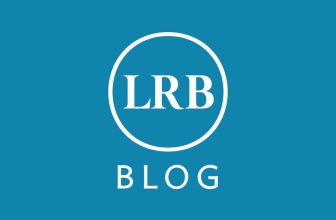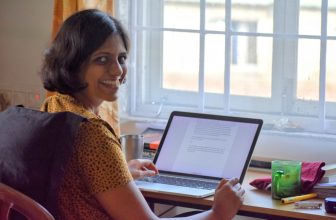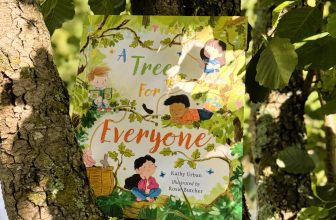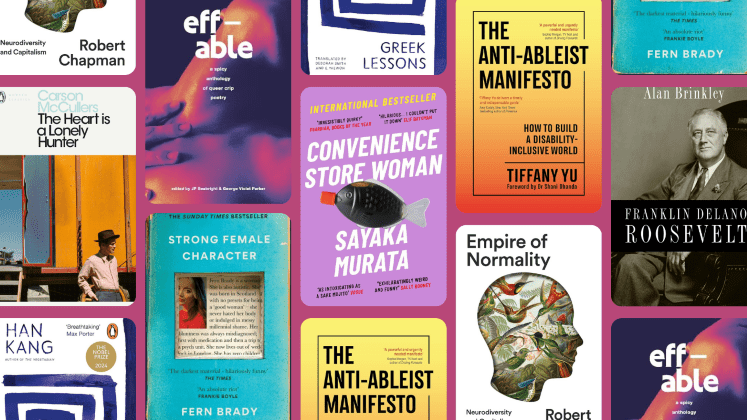
For UK Disability History Month 2025 (20 November to 20 December), members of LSE staff recommend eight powerful books about disability and neurodiversity and books sharing the experiences of disabled and neurodiverse people. This reading list – covering fiction, biography, memoir, political writing and poetry – will inform, entertain and move readers.
This story is about an autistic woman in Japan, who finds her safe place working in a convenience store. While the outside world is chaotic, unpredictable and confusing, the social norms, interactions, and daily routines of the convenience store provides the infrastructure that Keiko, the protagonist, understands. It is clear through the narrative that Keiko is autistic, although this is never explicitly addressed by her family or her colleagues. She understands that she is different, she struggles to understand social interactions, and she regularly masks in social settings, drawing on a range of pre-learned social cues to survive in the world. The book deals with the pressures of modern life, including societal pressures to conform, such as by marrying and having children. The book also questions how we find purpose and meaning in the work that we perform, and how the world has been shaped to accommodate a-typical and not neurodiverse people. It’s a powerful and tender narrative that challenges assumptions about autistic people and asks us to reflect on what we can do to accommodate neurodiversity in the workplace.
Recommended by Kay O’ Neill, Communications and Events Manager, Department of Government
 Empire of Normality: Neurodiversity and Capitalism. Robert Chapman. Pluto Press. 2023.
Empire of Normality: Neurodiversity and Capitalism. Robert Chapman. Pluto Press. 2023.
As someone with ADHD and working as a disability and mental health practitioner, I enjoyed Empire of Normality because it articulates really powerfully how society constructs “normality’” – giving language and context to many of the challenges I see both personally and professionally.
Recommended by Lucy Mu, Staff Disability and Mental Health Adviser, HR Division
eff-able: a spicy anthology of queer crip poetry is an anthology by authors who often face multiple forms of marginalisation due to being both queer and disabled. The anthology examines forms of intimacy, desire, and sensuality which are often missed or actively erased during discourse on disability. Poems range from hilarious to devastatingly sad, to poignant and incredibly tender.
Recommended by Andrew Crane, Receptionist and Administrative Assistant, Estates Division
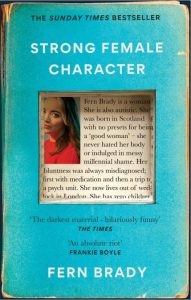 Strong Female Character. Fern Brady. Brazen. 2023.
Strong Female Character. Fern Brady. Brazen. 2023.
Fern’s description of life as a young autistic woman growing up undiagnosed is written with incredible wit and honesty and reflects her experience of being neurodivergent which many will be able to relate to. She writes just as she talks, with a thinly veiled rage against the misunderstandings and mistreatment she had to deal with as well as being laugh-out-loud funny, which is quite a balance! I couldn’t put it down.
Recommended by Kirsty Mackenzie, Deputy Head of Disability and Mental Health Service
The Scottish comedian describes her experience of late-diagnosed autism and the challenge women and girls face in getting diagnosed. It won the Nero Book Award for non-fiction in 2023 and is very funny! I loved it.
Recommended by Stef Hackney, Head of LSE Disability and Mental Health Service
This book is full of humour, but it also has a raw frankness in describing her frequent meltdowns and difficulties associated with living as a neurodiverse person in a world designed for the neurotypical. It really shows the value of offering support services for children to enable early detection.
Recommended by Heather Dawson, Librarian, LSE Library
 The Heart is a Lonely Hunter. Carson McCullers. Penguin Classics (2008); originally published 1940.
The Heart is a Lonely Hunter. Carson McCullers. Penguin Classics (2008); originally published 1940.
I’d like to recommend The Heart is a Lonely Hunter by Carson McCullers. This powerful novel explores themes of isolation, communication, and the human condition through the lens of its central character, John Singer, a deaf-mute man navigating life in a Southern town in the USA. McCullers’ sensitive portrayal of disability and difference invites reflection on how society engages with those who experience the world differently.
Recommended by Jacqueline Mujico Executive Assistant, International Inequalities Institute
 Franklin Delano Roosevelt. Alan Brinkley. Oxford University Press. 2010.
Franklin Delano Roosevelt. Alan Brinkley. Oxford University Press. 2010.
When I was growing up, disability was almost always depicted as a hindrance of some kind – as a condition of life which the individual could only hope to manage as best they could. What depictions of disability in my childhood didn’t show was how disability could be not just part of, but could actually determine, lives of immense consequence.
A 2022 survey of presidential historians ranked Franklin D Roosevelt (FDR) as the greatest President in US history – he is certainly the most important President of the 20th Century. In 1921, FDR was left permanently paralysed from the waist down following a bout of sickness (the cause of which is still disputed). This presented a significant practical challenge for a young politician – given both the campaigning expectations of the age and contemporary attitudes towards disability – but FDR later served as Governor of New York and in 1932 was elected President of the United States. FDR entered office in 1933, in the wake of the 1929 Wall Street Crash. His economic, social and political reforms – popularly known as the “New Deal” – were critical to addressing lack of confidence in the financial system, chronic job shortages and the resulting poverty which had swept the nation. It’s thought that FDR’s own experience of being disabled made him more sympathetic to the plight of the vulnerable in society – the elderly, workers and the poor – than he might otherwise have been given his exceptionally privileged upbringing.
FDR went on to become the only US President to serve more than two terms, dying in office in April 1945 after overseeing the most effective democratic coalition in modern history which would bring the Second World War to an end a few months later. For all his human faults, he was a remarkable person and his own experience of disability fundamentally shaped that remarkable life. I would recommend reading about him to anyone.
Recommended by Kieran Darling, Senior Human Resources (HR) Policy Adviser, HR Division
Why I’d recommend it: This nonfiction book is approachable for disabled and non-disabled readers and can be read in small chunks. It also has great reflection questions at the end of each chapter. A must-read!
Recommended by Bex Manlove, Assistant Learning Technologist, LSE Eden Centre
As someone with ADHD who works in disability support, I loved The Anti-Ableist Manifesto because it felt uplifting and practical – it put into words the kind of inclusive world I’m always trying to help build.
Recommended by Lucy Mu, Staff Disability and Mental Health Adviser, HR Division
Han Kang’s Greek Lessons centres on a woman, living in Seoul, who has lost her ability to speak after the trauma of losing custody of her son in a bitter dispute with her ex-husband. She is learning Ancient Greek in her spare time, and forms a relationship with her teacher, a German immigrant to Korea who is going blind and feels increasingly isolated in his life. It’s a haunting meditation on the loneliness that is part of the human condition and feelings of isolation connected to disability. But it’s also a hopeful, tender story about two people in pain finding comfort in one another, written in poetic, ruminative prose by this Nobel-Prize winner.
Recommended by Anna D’Alton, Managing Editor, LSE Review of Books, Communications Division
LSE Review of Books thanks all the members of the LSE community who contributed to this reading list with their book recommendations.
Note: This post gives the views of the author and not the position of the LSE Review of Books blog, nor of the London School of Economics and Political Science.
Enjoyed this post? Subscribe to our newsletter for a round-up of the latest reviews sent straight to your inbox every other Tuesday.

 Convenience Store Woman. Sayaka Murata. Translated from Japanese into English by Ginny Tapley Takemori. Granta. 2019.
Convenience Store Woman. Sayaka Murata. Translated from Japanese into English by Ginny Tapley Takemori. Granta. 2019.  eff-able: a spicy anthology of queer crip poetry. George Parker and JP Seabright (editors). Fourteen Publishing. 2025.
eff-able: a spicy anthology of queer crip poetry. George Parker and JP Seabright (editors). Fourteen Publishing. 2025. The Anti-Ableist Manifesto: How to Build a Disability-Inclusive World. Tiffany Yu. Profile Books. 2025.
The Anti-Ableist Manifesto: How to Build a Disability-Inclusive World. Tiffany Yu. Profile Books. 2025. Greek Lessons. Penguin. 2024. Han Kang. Translated from Korean into English by Deborah Smith and e. yaewon. 2023.
Greek Lessons. Penguin. 2024. Han Kang. Translated from Korean into English by Deborah Smith and e. yaewon. 2023.

